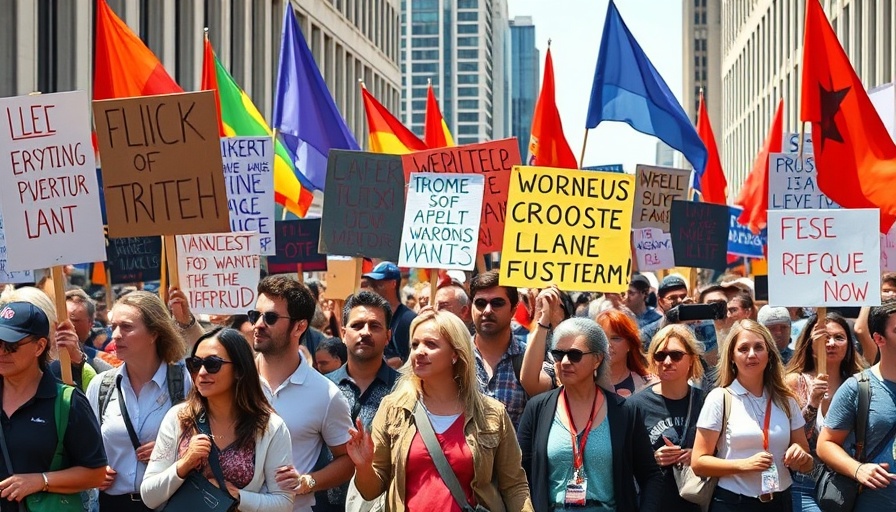
Embracing Your Narrative: A Path to Healing and Justice
For many trauma survivors, the journey to healing can feel impossibly heavy, often compounded by injustices faced early in life. As children, we're often left powerless against the unfairness that life throws our way—from neglect to overt abuse. As these themes tragically repeat, they create cycles of pain that define not only our past but also our present. The good news? Telling your story—giving voice to your experiences—can serve as a powerful catalyst for healing.
The Power of Storytelling
At its core, storytelling is an act of reclaiming power. For individuals who have lived through trauma, particularly the injustices associated with social class, gender, race, or identity, narrating their experiences provides a sense of agency that may have been stripped away in their past. As described in Lisa Rankin’s compelling article, even if formal avenues for justice seem closed, the narrative power of our experiences can wield enormous psychological impact.
Take, for instance, the story of Sarah Wynn-Williams. By recounting her unjust treatment by powerful figures at Facebook, she found a means to spill the truth, waking up the world to the toxic realities behind the shiny façade of corporate giants. Even when legal barriers tried to silence her, her narrative not only resonated but soared up the New York Times bestseller list, illustrating that vulnerability can transform into profound strength.
The Social Significance of Sharing
Telling our stories isn’t just personal; it’s a communal act that resonates with others who may have faced similar injustices. This is where the power of empathy lies. When individuals come together and share their stories, they often lift others out of isolation. This creates a ripple effect, fostering understanding and opening discussions around difficult topics.
In workshops like the one offered by Rankin, attendees are encouraged to express their narratives—paving the way for not just personal healing but a shared process of justice and accountability. This collective storytelling enriches community bonds, offering a platform that elevates the marginalized. As stories surface, they catalyze conversations that challenge the injustices engrained in societal fabric.
Healing through Memoir: A Workshop for Transformative Change
Participating in writing workshops such as “Mentor Your Memoir” can empower individuals to articulate their truths in a safe space. By focusing on childhood experiences—often the most formative and hurtful—we can reframe our understanding of past suffering. In such an environment, writers can explore their emotions, transforming years of anguish into healing narratives.
Through guided exercises, participants learn to express their pain, reconnect with their inner selves, and embrace their journeys. Writing becomes not just a personal endeavor, but a means to educate others about the very real issues of abuse, neglect, and systemic injustice.
Transforming Pain into Purpose
Ultimately, telling our stories serves a purpose beyond individual healing. It opens conversations about injustices that plague society, prompting broader recognition of issues many would prefer to overlook. While the notion that “everything happens for a reason” can be comforting, the reality is that abuse is not a choice, nor does it serve a higher purpose; rather, it highlights the systemic failures we must address.
Moreover, the emotional impact of telling one’s story shouldn’t be underestimated. It often leads to catharsis—a release of pent-up feelings, allowing survivors to stop carrying the burden of shame and secrecy. This act of vulnerability mirrors what psychologist Brené Brown identifies as true courage: the willingness to face ourselves and expose our truths.
Frequently Asked Questions
Why is storytelling so powerful for survivors of trauma?
Storytelling empowers individuals by offering agency over their narrative and eliciting empathy from others. Sharing experiences can build community and offer support, thus promoting healing.
Can writing really help me heal old wounds?
Yes! Several studies have shown that expressive writing provides therapeutic benefits, helping individuals process pain and trauma while facilitating emotional release.
Take the First Step Toward Healing
Are you ready to embrace your story and find freedom from your past? Engaging in the act of storytelling may not only provide personal justice but can benefit countless others who resonate with your narrative. Sign up for writing workshops or start journaling today! Your voice deserves to be heard, and in doing so, you pave the path toward healing—not just for yourself, but for your community.
Let your story be part of the change!
 Add Row
Add Row  Add
Add 




Write A Comment